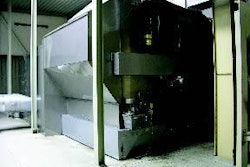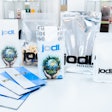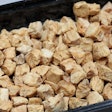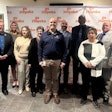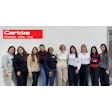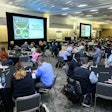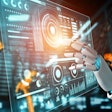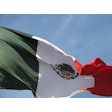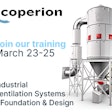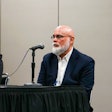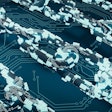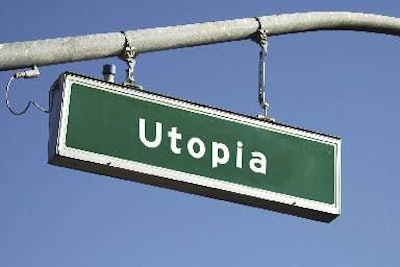
In The Singularity is Near , futurist Ray Kurzweil examines what he calls the next step in our evolutionary progress: the union of humans and computers. He believes that the knowledge and skills embedded in our brains will be combined with the vastly greater capacity, speed and knowledge-sharing ability of computers ( www.singularity.com ).
Our intelligence will become increasingly nonbiological and trillions of times more powerful than it is today, Kurzweil says. He sees an astonishing future in which technological progress will create a utopia - for people and pets.
Although he doesn't mention pets specifically, I think the advances in human health he predicts will surely improve pet care. Yes, this month's column might be a stretch, but I think it's good to stretch from time to time.
Eternal life in 2020
Within a few decades, machine intelligence will far surpass human intelligence, leading to Singularity - technological change so rapid and profound it will "rupture the fabric of human history," asserts Kurzweil. The implications include "the merger of biological and nonbiological intelligence, immortal software-based humans and ultra-high levels of intelligence that expand outward in the universe at the speed of light." He predicts that if you can live and remain relatively healthy until about the year 2020, scientific advancements and the achievement of Singularity will permit us to realistically achieve immortality.
Why such dramatic changes? The history of technology shows that technological change is exponential. So we won't experience 100 years of progress in the 21st century - it will be more like 20,000 years of progress (at today's rate). There's even exponential growth in the rate of exponential growth.
Part of Singularity is molecular nanotechnology. As we master the ability to design molecular machines that can continue to function when the living system around them has failed, those molecular machines can restore the function of the living system. Bottom line: Life and health will be restored and sustained in the face of greater injury, greater damage, greater trauma and greater dysfunction than ever before.
The promise of food nanotechnology
Following are a few food nanotechnology applications currently being researched and tested:
-
Nanocapsules for delivery of pesticides and fertilizers more efficiently.
-
Nanochips for identity preservation and tracking.
-
Nanoencapsulated flavor enhancers and nutraceuticals.
-
Lighter, stronger and more antimicrobial packaging films.
- Nanocheleates to deliver nutrients to cells more efficiently without affecting color or taste.
Not a nut
Lest you think that Kurzweil is a nut, think again. He is one of the world's leading inventors, thinkers and futurists, with a 20-year track record of accurate predictions. Kurzweil was selected as one of the top entrepreneurs by Inc. magazine, which describes him as the "rightful heir to Thomas Edison."
I hope to see you in 2020.
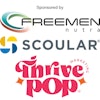
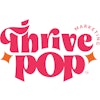
.png?auto=format%2Ccompress&fit=crop&h=167&q=70&w=250)
.png?auto=format%2Ccompress&fit=crop&h=167&q=70&w=250)

